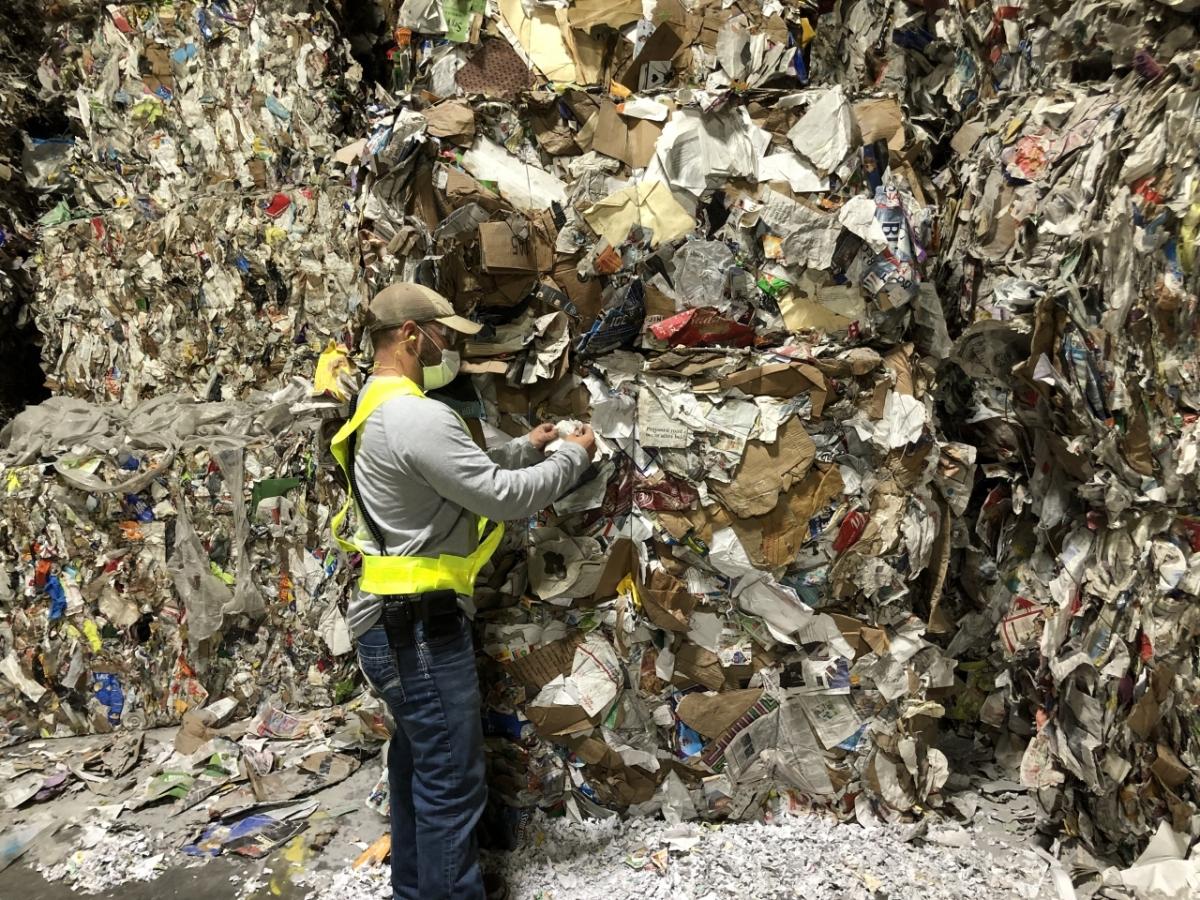During the Pandemic, You Can Make a Difference by Recycling

This year has ended up looking different from any other year in so many ways and as America Recycles Day approaches on November 15, now is a great time to remember why recycling is so important. Those items you put in your recycling bin helps produce the essential supplies that we need during this time, including paper towels, toilet paper and packaging. Many businesses that would normally generate large amounts of recyclables now have limited operations due to COVID-19 restrictions, which is why your recycled items are helping to create and maintain manufacturing jobs in our communities and beyond.
Getting Back to Basics with Recycling at Home
The COVID-19 pandemic has had a major impact on recycling efforts nationwide. More people are working from home, relying on home delivery of online purchases, restaurant takeout, groceries, prescriptions ꟷ all of which create substantially more recycling materials to put out at the curbside. As we look ahead to the holidays, the amount of recycling will only increase.
Essity, a global hygiene and health company with more than 3,000 employees at its manufacturing facilities nationwide, makes the Tork brand of paper towels, napkins, tissues and toilet paper all from recycled content. And almost all of the Tork’s packaging is made from recycled content and is 100% recyclable.
America Recycles Day is a great time to take a step back and re-learn what can ꟷ and should ꟷ be recycled at home. Essity has created tips and reminders for what to recycle, as well as some new ideas to get us through 2020.
General Recycling Tips and Facts (Sources: Recycling Partnership and EPA)
-
Bottles, cans, containers need to be empty.
Food and liquid creates problems down the line. For messy containers that require more than a simple rinse (like yogurt or peanut butter), let them soak or use a spatula to remove food waste from containers. -
Recycle plastic bottles with the cap on.
Unless your local recycling program says “no caps,” leave the plastic caps on plastic bottles. Plastics recyclers want your caps! Glass bottles, however, have corks or caps made from metal and those caps need to come off. -
Crush or flatten your recyclables when possible.
Crushing your materials will extend the amount of space in your bin without overflowing. -
Fact: It’s OK to leave staples, tape and mailing labels in/on paper or boxes to be recycled.
These items will come off/come out in the recycling process. -
Only recycling materials should go into recycling bins.
This does not include PPE. Masks, gloves and shields should be placed in a secured bag that is discarded in your trash container. -
Do NOT put your recyclables in plastic bags.
Just because something is plastic does not mean it can be recycled. Many retailers collect plastic bags and wrap (such as the plastic wrap around a case of water) but they don’t belong in your recycling. -
Fact: Recycling has many benefits. Recycling delivers reduced greenhouse gases, creates jobs, and returns materials to manufacturers which reduces the need for new materials.
Want to do more recycling? Here are some suggestions:
-
Start a backyard composting bin.
-
Donate. Instead of trashing old items, take them to a donation center.
-
Clean out jars and containers that you purchased at the store and reuse them to hold leftovers.
-
Purchase stackable storage bins to collect recyclables. You can also collect recycling materials in cardboard boxes or plastic storage bins. If you can afford it, buy large outdoor recycling bins.
-
Give your plastic bottles new life by turning them into a bird feeder, sprinkler, piggy bank or snack bowl.
-
Not enough room in your recycling bins for all of your items? Check with your friends and neighbors to see if they have room in their bins.
-
When ordering restaurant takeout, decline plastic utensils and plates unless you need them.
What’s next? Take this opportunity to educate yourself on your local recycling rules, perhaps commit to recycle more as we head into 2021. Your efforts really do make a difference, so let’s do everything in our power to keep America recycling.

